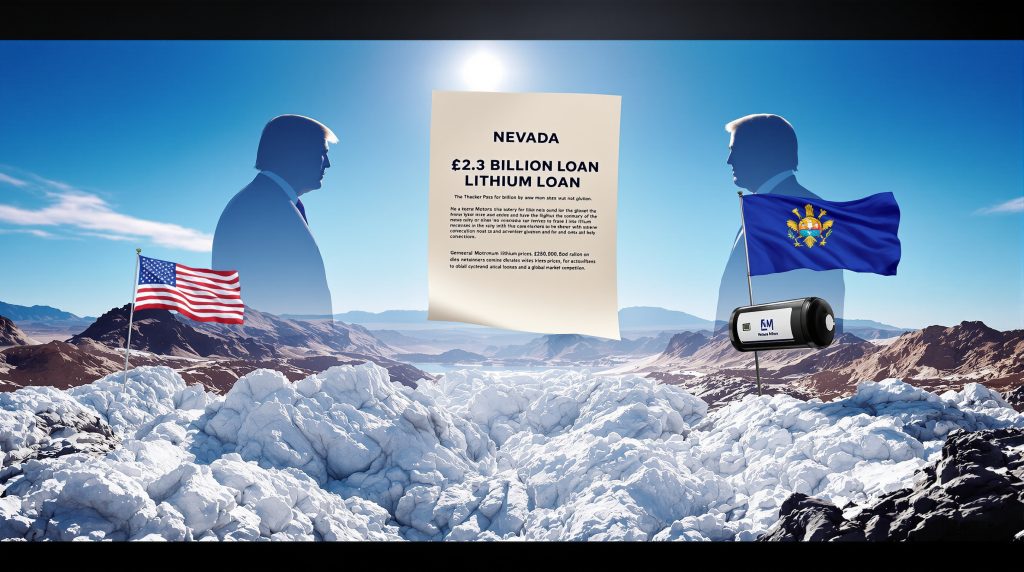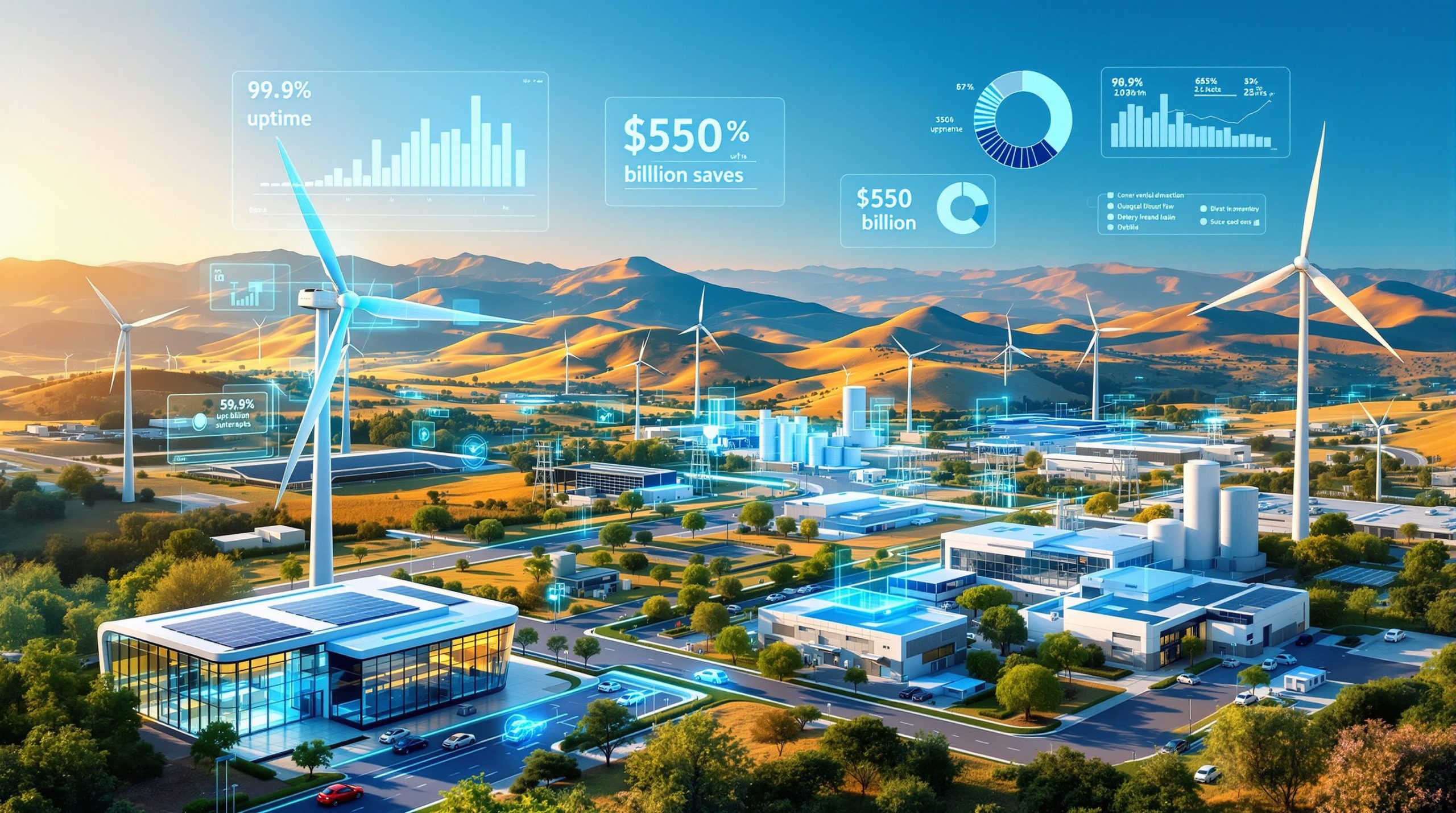What's Happening with the Thacker Pass Lithium Mine Loan?
The Trump administration has initiated a comprehensive re-evaluation of a $2.3 billion federal loan previously approved by the Biden administration for the Thacker Pass lithium mine in Nevada. This record-breaking loan, finalized in 2024, was intended to fund the construction of processing facilities at one of America's largest lithium deposits.
According to sources familiar with the matter, the Department of Energy (DOE) is conducting a thorough assessment of the financing terms and project fundamentals before proceeding with fund disbursement.
Timeline of the Thacker Pass Loan Development
- Late 2024: Biden administration finalizes $2.3 billion loan through DOE's Loan Programs Office
- December 2024: General Motors acquires 38% stake in project for $625 million
- 2025: Trump administration begins re-evaluation of loan terms and conditions
- Current status: Negotiations ongoing between DOE, Lithium Americas, and General Motors
Why Is the Federal Government Reconsidering This Critical Minerals Loan?
Economic Viability Concerns in Global Lithium Market
The DOE's Loan Programs Office has raised significant concerns about the project's ability to compete with lower-cost international lithium producers. Greg Beard, a senior advisor within the loan office, has reportedly warned that the Thacker Pass project might struggle to secure customers amid intense global competition, particularly from Chinese suppliers who dominate the market with more competitive pricing structures.
The ongoing lithium market imbalance has further complicated economic projections for new mining ventures in the sector.
Demand for Binding Offtake Agreements
As part of the review process, federal officials are now reportedly pushing General Motors to sign a binding offtake agreement for the mine's future lithium production. This would provide greater certainty regarding the project's commercial viability by securing a guaranteed customer for the processed lithium carbonate.
A binding agreement would differ significantly from preliminary interest or non-binding memorandums of understanding, providing concrete assurance that the produced lithium will have a market.
Broader Review of Green Energy Financing
The re-evaluation comes amid a comprehensive assessment of green energy financing commitments made through the Energy Department's $400 billion loan program. This review aims to ensure that taxpayer resources are strategically deployed to advance American economic and energy security interests.
The recent Trump minerals order has highlighted the administration's focus on securing domestic supply chains for critical resources.
Key Stakeholders in the Thacker Pass Lithium Project
Lithium Americas: Project Developer
Lithium Americas Corp, the Canadian-based mining company developing the Thacker Pass project, has been counting on the federal loan to provide the majority of capital needed for construction of the processing facilities. The company received final approval to begin construction in 2023 after navigating extensive permitting processes.
Tim Crowley, Lithium Americas' head of government affairs, stated that the company "continues to work closely with the DOE and our partner GM toward first draw on the DOE loan" and will provide updates "at the appropriate time."
General Motors: Strategic Investor
General Motors holds a significant 38% equity stake in the Thacker Pass project, having invested $625 million through a combination of cash and letters of credit in December 2024. This investment reflects the automaker's strategy to secure domestic supply chains for electric vehicle battery production.
According to a GM spokesperson: "During his first term President Trump strongly supported the development of Nevada's Thacker Pass mine. We're confident in the project, which supports the administration's goals, and have committed almost $1 billion to its development, including a nearly $200 million letter of credit."
Department of Energy: Loan Provider
The Department of Energy, in its statement regarding the loan review, emphasized its responsibility to "ensure our limited taxpayer resources are used to advance best interests of the American people and generate a return on investment." This signals the administration's focus on both economic returns and strategic benefits when evaluating large-scale financing for critical mineral projects.
How Important Is Thacker Pass for US Lithium Supply Chain?
Production Capacity and Reserve Size
Thacker Pass represents one of the largest known lithium deposits in the United States, with the potential to significantly impact domestic supply capabilities. The project's first phase aims to produce approximately 40,000 tonnes of battery-grade lithium carbonate annually, representing a substantial portion of potential US domestic production.
Current US lithium production is minimal compared to global leaders such as Australia, Chile, and China, making the Thacker Pass project strategically significant for reducing import dependence.
Strategic Value for Energy Transition
As electric vehicle adoption accelerates, securing reliable access to battery materials has become a national priority. Domestic lithium production would reduce dependence on foreign suppliers and strengthen supply chain resilience for US manufacturers.
Currently, the US imports over 95% of its lithium needs, creating vulnerability in the supply chain for critical technologies including electric vehicles, energy storage systems, and electronics.
Economic Impact on Nevada and Beyond
When fully operational, the project is expected to create hundreds of jobs in rural Nevada and contribute significantly to local and state economies. The processing facilities would transform raw lithium into battery-grade lithium carbonate, adding substantial value within U.S. borders rather than exporting raw materials for processing overseas.
The US mineral production order underscores the importance of developing domestic resources like Thacker Pass for national security.
What Challenges Does the Thacker Pass Project Face?
Cost Competitiveness vs. Global Producers
A primary concern highlighted in the loan review is whether Thacker Pass can produce lithium at costs competitive with established global producers. Australian, Chilean, and Chinese operations benefit from economies of scale and, in some cases, lower operating costs that create significant competitive pressure.
Global lithium prices have experienced significant volatility in recent years, ranging from highs of over $80,000 per tonne to lows below $20,000 per tonne, making long-term economic viability assessments challenging.
Environmental and Regulatory Hurdles
The project has undergone extensive environmental review and permitting processes, addressing concerns related to water usage, wildlife impacts, and land disturbance. These environmental safeguards remain important considerations in the overall project evaluation.
Water usage requirements for the processing facility have raised concerns in the drought-prone region, though the company has implemented water conservation technologies to mitigate impacts.
Community and Tribal Considerations
The project has faced both support and opposition from local communities and Native American tribes. Economic development benefits must be balanced against concerns about environmental impacts and cultural resource protection, which have led to legal challenges during the permitting process.
Several tribes have expressed concerns about potential impacts to culturally significant areas, though courts have generally ruled in favor of the project's permitting process.
How Does This Loan Review Compare to Global Lithium Development?
International Lithium Project Financing Models
While the $2.3 billion federal loan for Thacker Pass represents a significant government investment, other countries have employed different models to support domestic lithium development:
- Australia: Primarily private financing with government support through research grants and permitting assistance
- Chile: State-controlled lithium concessions with private development partners
- Canada: Mix of private investment and provincial government support
- China: Substantial state backing for both domestic and international lithium assets
Market Position of US Lithium Production
Currently, the United States produces minimal lithium domestically despite growing demand from battery manufacturers and automakers. Thacker Pass represents an opportunity to establish a significant position in the global market, though it would still represent a fraction of worldwide production even at full capacity.
The global lithium market is projected to grow from approximately 600,000 tonnes in 2024 to over 2 million tonnes by 2030, driven primarily by electric vehicle battery demand, according to industry analysis by Energy Institute.
What Are the Potential Outcomes of the Loan Review?
Possible Financing Scenarios
The review process could lead to several potential outcomes:
- Loan approval with original terms: The review concludes favorably and the loan proceeds as initially structured
- Modified loan terms: Additional conditions or guarantees required before fund disbursement
- Reduced loan amount: Smaller federal commitment with greater private capital requirements
- Loan denial: Complete withdrawal of federal financing, requiring alternative funding sources
Impact on Project Timeline
Any significant delay in loan disbursement could impact construction schedules and ultimately the project's ability to meet market demand windows. The timing of the review conclusion will be critical for Lithium Americas' development plans.
Industry experts estimate that any major delays could push full production into late 2027 or beyond, potentially missing a critical window in EV market growth.
Broader Policy Implications
The decision on the Thacker Pass loan could signal broader policy directions regarding:
- Competition with Chinese producers in critical mineral markets
- The extent to which the U.S. government is willing to financially support domestic alternatives
- Balance between economic viability and strategic necessity in critical mineral development
Conclusion: Balancing Economics and Strategy in US Lithium Development
The re-evaluation of the $2.3 billion loan for the Thacker Pass lithium project illustrates the complex challenges facing domestic critical mineral development. As the United States seeks to establish secure supply chains for energy transition technologies, policymakers must balance economic viability, environmental responsibility, and strategic imperatives.
The outcome of this review will not only determine the future of one of America's largest lithium deposits but also signal broader policy directions for critical mineral financing and development. For stakeholders across the electric vehicle and battery supply chains, the Thacker Pass decision represents a critical indicator of government commitment to domestic production capacity in an increasingly competitive global market.
Advanced spodumene lithium extraction and other lithium mining techniques will be critical to ensuring projects like Thacker Pass can compete in global markets.
FAQ: Understanding the Thacker Pass Lithium Loan Review
Why is lithium considered a critical mineral for the United States?
Lithium is essential for battery production in electric vehicles and energy storage systems, making it strategically important for the clean energy transition and reducing dependence on fossil fuels.
How much lithium could Thacker Pass produce annually?
The first phase of the project aims to produce approximately 40,000 tonnes of battery-grade lithium carbonate annually.
Who currently supplies most of the lithium used in US manufacturing?
Most lithium used in US manufacturing comes from Australia, Chile, Argentina, and China, with minimal domestic production despite growing demand.
How many jobs would the Thacker Pass project create?
The project is expected to create hundreds of construction jobs and permanent operational positions in rural Nevada.
What role does General Motors play in the Thacker Pass project?
General Motors holds a 38% stake in the project and would potentially be a major customer for the lithium produced, using it for electric vehicle battery production.
Ready to Spot the Next Major ASX Mineral Discovery?
Don't miss potential market-moving mineral announcements on the ASX. Explore Discovery Alert's dedicated discoveries page to see how their proprietary Discovery IQ model identifies significant mineral discoveries in real-time, giving subscribers a decisive market edge.




